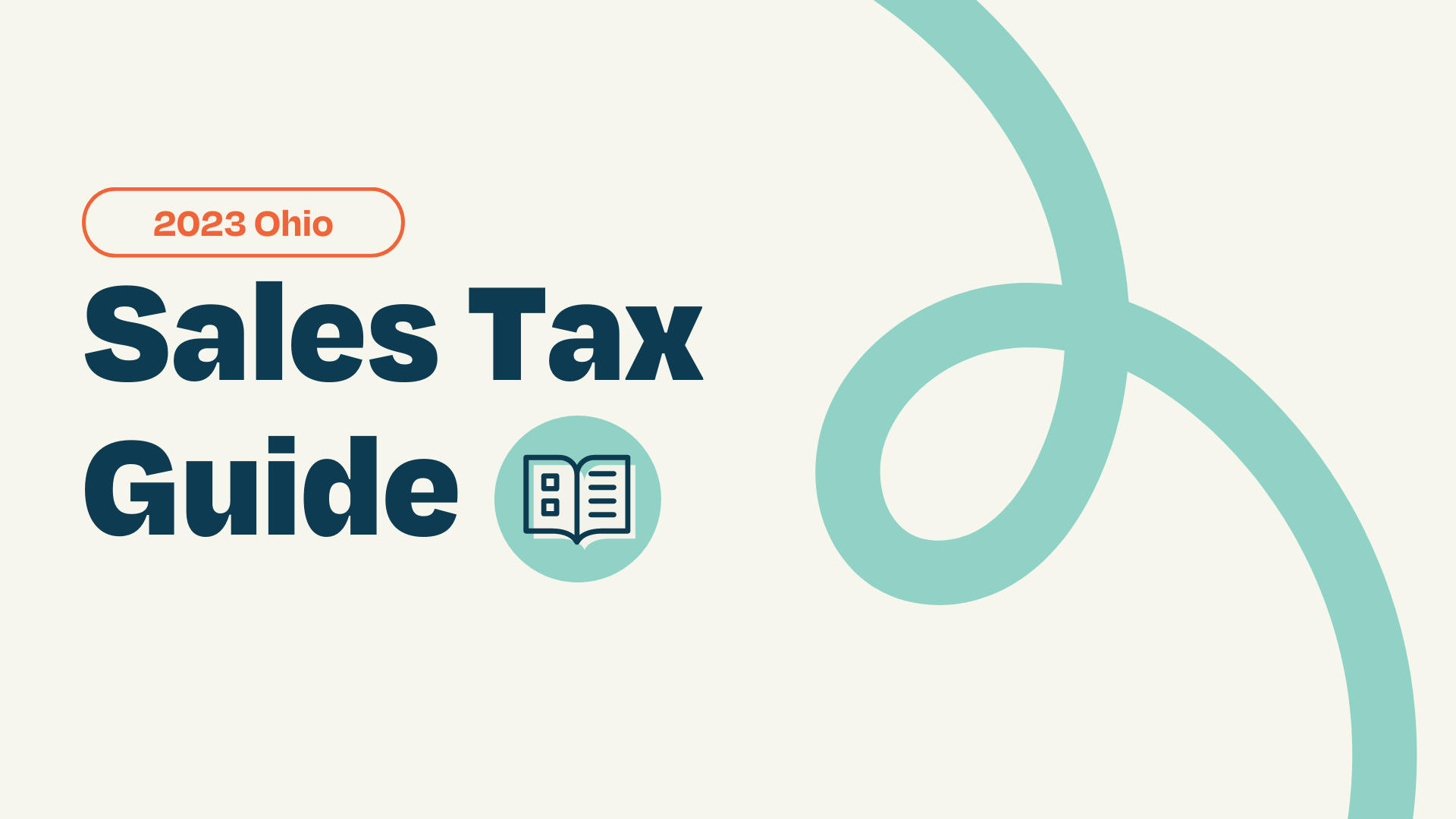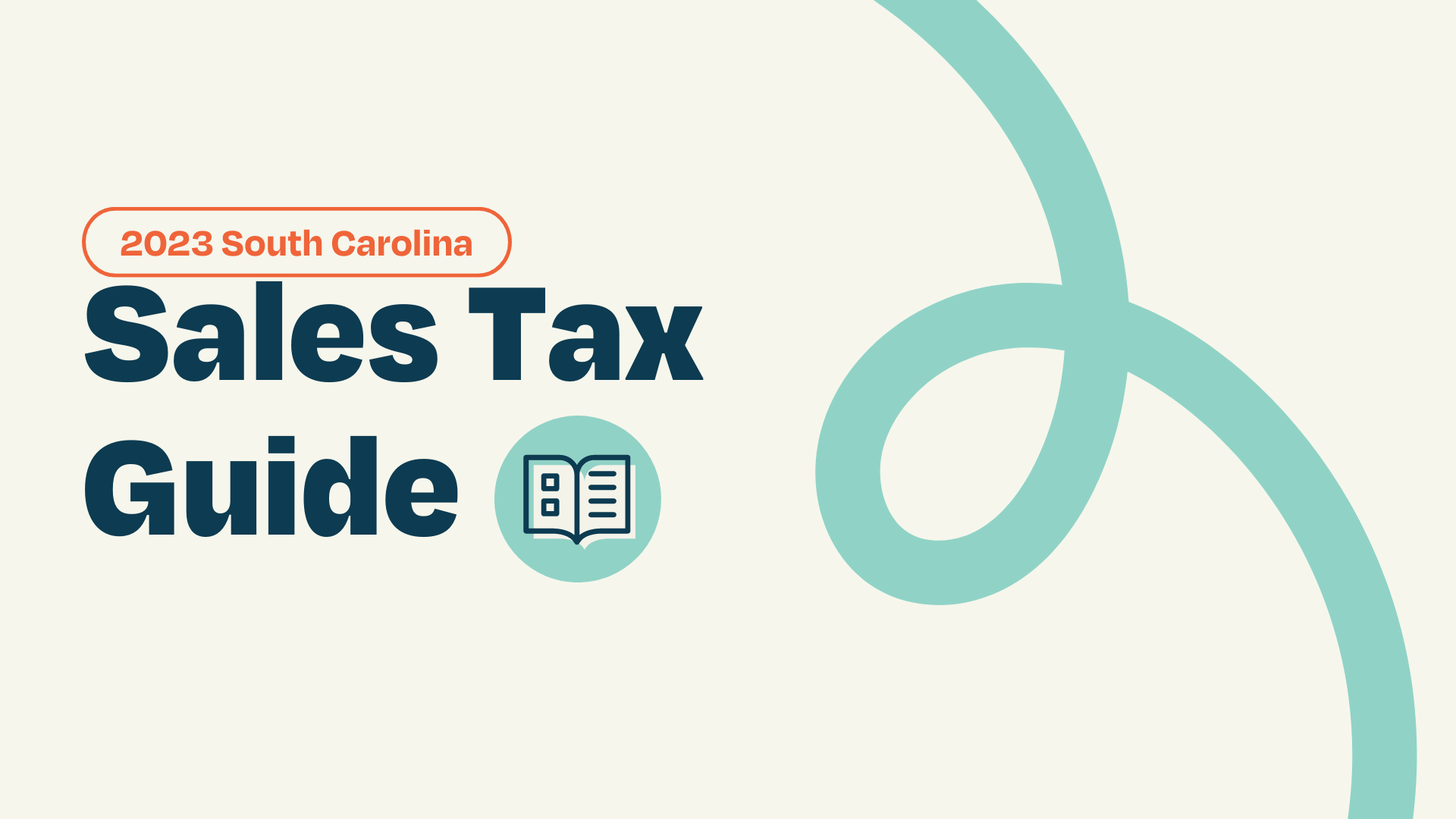1 min read
Economic Nexus by State: A Comprehensive Guide
As businesses continue to expand their online presence, understanding the implications of economic nexus has become increasingly important. Economic...
9 min read
Enzo O'Hara Garza
:
October 18, 2024

Running a business is already challenging, and then there’s sales tax nexus—an issue that can turn things upside down if you’re not careful.
Understanding sales tax nexus is not just about compliance; it's about protecting your business from costly penalties, audits, and reputational damage.
But don't worry! We’re here to break down this often confusing topic into simple terms, so you can stay compliant and focus on what you do best: growing your business.
|
Table of Contents |
Let’s start with the basics. Sales tax nexus is just a fancy way of saying your business has a significant connection to a state that requires you to collect and remit sales tax there. This nexus definition for business is crucial to understand as it affects your tax obligations.
Sales tax nexus is an important concept for any business selling goods or services across state lines. It’s a key aspect of sales tax laws that determines whether or not you need to collect sales tax for that state.
This “connection” can come from a lot of different activities—like having a physical store, office, warehouse, or even just an employee working in the state. If you have a sales tax nexus, it means you need to be collecting and sending sales tax to that state.
For example, if you run a retail store in Colorado and open another location in Texas, you now have nexus in both states and must collect sales tax from customers in both places.
With each state having its own set of rules that can change frequently, it’s crucial for businesses to stay up-to-date and compliant. But don’t panic! We’ll walk you through what creates nexus and what you need to do about it.
There are several ways your business can trigger state tax nexus, and it’s not just about having a store in a state anymore. Let’s break it down.
If your business has a physical location, such as an office, store, or warehouse, in a state, you have physical presence nexus.
For example, if you store inventory in an Amazon warehouse in California, you’ve established physical nexus there. This means you’re responsible for collecting and remitting sales tax on sales made to California customers.
Have an office, store, or warehouse in a state? You’ve got nexus.
Employees working in a state? Nexus.
Storing inventory, say, with Amazon’s FBA service? You guessed it—nexus.
The rules for economic nexus changed significantly after the 2018 Supreme Court ruling in South Dakota v. Wayfair. Before this ruling, businesses only needed to collect sales tax if they had a physical presence in a state (1,2).
Now, states can require businesses to collect sales tax based on their economic activity alone. This means that even without a store or office, you might still need to register and remit sales tax if your sales in a state exceed a certain threshold.
Economic nexus refers to a business presence in a state that’s significant enough to require you to collect and remit sales tax, even if you don’t have a physical presence there. This typically happens when your sales or transaction volume crosses a certain threshold.
For most states, the threshold is $100,000 in taxable sales or 200 transactions over 12 months. However, states like California and Texas have higher thresholds of $500,000 in sales. It’s crucial to know the specific requirements for each state to stay compliant.
Many small business owners are caught off guard by these rules and find themselves suddenly liable for collecting taxes in states they’ve never visited.
Let’s say you run an online business selling handmade furniture. Your business is based in Colorado, but you sell to customers all over the U.S. One day, you realize that your sales to customers in New York have reached over $500,000 this year.
Despite not having a physical store or employee in New York, you now have economic nexus there and are required to start collecting and remitting New York sales tax. In this scenario, your next steps would be to register for a sales tax permit in New York and ensure that you are collecting the appropriate sales tax from your customers in the state.
|
Alaska Sales Tax Guide (N/A) |
||||
|
Montana Sales Tax Guide (NA) |
||||
|
Oregon Sales Tax Guide (N/A) |
||||
|
Delaware Sales Tax Guide (N/A) |
||||
|
New Hampshire Sales Tax Guide (NA) |
||||
And don't forget to check out our blog about Economic Nexus, which serves as an invaluable resource for businesses who have sales that are subject to sales tax.
Selling on platforms like Amazon or Etsy? Some states make the marketplace collect tax for you, but don’t zone out yet—you might still have to handle some parts yourself, like reporting.
Selling digital products or SaaS can make compliance even more complex. Different states have different rules for taxing digital goods. For instance, SaaS products are fully taxable in Connecticut but not in California. If you sell digital goods, be sure to check the specific rules for each state.
This occurs when a business has an affiliate relationship with another entity in the state. For example, if your New York business is affiliated with a company in Texas through shared ownership, you may have nexus in Texas.
This happens when you have agreements with individuals in a state to refer customers to your business, often through a website or other online means. This type of nexus is common for online businesses using affiliate marketing.
In short, if you’re doing business across state lines, there’s a good chance you have state tax nexus somewhere. Knowing where is the first step to staying compliant.
If your business has nexus in a state, you are legally required to register for a sales tax permit, collect the appropriate sales tax from customers in that state, and remit it to the state’s tax authority. Failing to comply with sales tax laws can lead to penalties, fines, and even audits.
The cost of non-compliance can be steep. In California, for example, penalties can be as high as 25% of the tax owed, plus interest. This can quickly add up, especially for businesses with significant sales volume.
In Texas, failing to collect and remit sales tax can result in penalties up to 50% of the tax owed, while in New York, penalties can include both fines and criminal charges for repeated non-compliance.
Non-compliance increases your risk of being audited. An audit can drain your time, money, and energy—things better spent on growing your business. By staying compliant, you reduce the likelihood of an audit and ensure that your business operations run smoothly.
Your customers and partners trust you to do things right. Being slapped with non-compliance issues doesn’t look good, and it can erode that trust. Staying compliant with sales tax regulations demonstrates professionalism and integrity, helping to build and maintain a positive reputation in the marketplace.
Managing these obligations can be overwhelming, but you don’t have to do it alone. Don’t navigate these complex regulations by yourself. Our SALT experts provide comprehensive sales tax services to help you stay ahead of your obligations, so you can focus on growing your business.
Learn more about our sales tax solutions and find the right compliance plan for your needs.
Wondering if your business has nexus? Don’t worry. Here’s how you can figure it out:
Check Your Location: Look at where you have offices, warehouses, or even just employees. If you’ve got a physical footprint in a state, that’s nexus.
Review Your Sales and Transactions: Check the states where you’re making sales. Have you crossed the $100,000 or 200 transactions threshold? If yes, you’ve got economic nexus.
Inventory Locations: Are you storing goods in different states, like with Amazon FBA? This can create nexus, too.
Marketplace Sales: If you’re using a marketplace, see what they’re collecting for you and what you might still need to handle. It varies by state, so check the rules!
By taking these steps, you can get a clearer picture of where you have nexus—and take action before the state knocks on your door.
It’s important to know whether the state uses an origin-based or destination-based sales tax rate:
Understanding these rules helps ensure you collect and remit the right amount of sales tax, keeping your business compliant with varying state regulations.
So, you’ve got nexus. What now? Here’s how to stay on top of it:
Keep Track of Nexus Triggers: Monitor where you’re selling and how much. Use a spreadsheet, or better yet, sales tax software that can track it for you.
Register for Sales Tax Permits: Once you’ve identified a state where you have nexus, register for a sales tax permit before you start collecting tax.
Collect the Right Amount of Tax: Use up-to-date rates for every state and jurisdiction where you have nexus. Sales tax rates can change, so make sure you’re on top of them.
File and Remit on Time: Don’t miss those filing deadlines! Late filings can result in penalties, and nobody needs that kind of stress.
Managing sales tax nexus can be challenging, but it’s essential for protecting your business from costly penalties and audits. By staying proactive and up to date with changing sales tax laws, you’ll not only avoid compliance issues but also maintain a strong reputation with your customers and partners.
To comply with economic nexus, follow these three steps:
Identify Where You Have Nexus: Review your sales and transaction history for each state to determine if you’ve exceeded the threshold.
Verify Tax Rates and Jurisdiction Rules: Look up specific tax rates and rules for each state where you have nexus. Make sure you're applying the correct rates based on whether the state follows origin-based or destination-based tax rules.
File and Remit Your Taxes: Register in each state where you have nexus, collect the right amount of sales tax, and file your returns on time to avoid penalties.
While these steps can be managed internally, professional services and automation tools significantly reduce the burden, allowing you to focus on your core business.
If managing these obligations feels overwhelming, consider partnering with experts who can provide guidance and support. Stay ahead of your compliance needs and focus on what matters most—growing your business.
Managing sales tax compliance across multiple states can be overwhelming, especially when you have to manually track and calculate different tax rates. That’s where automation tools come in handy.
For example, Xero’s integration with Avalara makes it easier than ever to manage sales tax compliance across multiple states. Automate tax calculations, track where you have nexus, and stay compliant with ease. Learn more about how this integration can simplify your sales tax process.
Did you know that businesses using automated sales tax software reduce the time spent managing sales tax by 58% and avoid overpaying sales tax 90% more often? This shows how automation not only saves time but also reduces costly errors and penalties (3).
Managing nexus doesn’t have to be a nightmare. Sales tax software can be your best friend here, doing the heavy lifting for you. Tools like Avalara or TaxJar can:
Automatically Calculate Sales Tax: They use real-time rates, so you’re always collecting the right amount.
Track Nexus Across States: You can see where you’re approaching thresholds and need to register.
Automate Filing and Payment: They’ll file and pay on your behalf, so you don’t miss a deadline.
With the right software, managing sales tax becomes way less intimidating and way more manageable.
Automation is a great first step, but for complete peace of mind, you need more than just tools. That’s where our dedicated compliance specialists come in, providing tailored support to help you navigate the intricacies of sales compliance confidently.
Whether you need help with monthly filing support or a comprehensive compliance plan, our team is here to guide you through every step of the process. With expert advice and personalized assistance, we take the stress out of managing sales tax so you can focus on growing your business.
Learn more about how our monthly filing support and dedicated compliance specialists can help keep your business on track and compliant.
Understanding and managing sales tax nexus might not be the most exciting part of running a business, but it’s crucial.
The good news? You don’t have to do it alone. Whether you’re a small business or an eCommerce giant, taking the right steps now will save you headaches (and dollars) down the road.
Need help navigating the twists and turns of sales tax compliance? Our team at Accounting Prose has your back. We’ll help you identify your nexus, get you registered, and keep you compliant, so you can focus on what you do best—building your business.
Taking proactive steps to manage your sales tax obligations not only protects your business but also positions it for long-term success. Contact us today, and let’s take the stress out of sales tax compliance together.
Stripe. (2023). Nexus Tax 101: A Complete Guide to Nexus and Sales Tax Nexus. Retrieved from https://stripe.com/resources/more/nexus-tax-101
Stripe. (2023). Introduction to U.S. Sales Tax and Economic Nexus. Retrieved from https://stripe.com/guides/introduction-to-us-sales-tax-and-economic-nexus
Avalara. (n.d.). The Benefits of Sales Tax Automation for Retailers. Retrieved from https://www.avalara.com/us/en/learn/whitepapers/competitive-advantages-sales-tax-automation-retailers.html

1 min read
As businesses continue to expand their online presence, understanding the implications of economic nexus has become increasingly important. Economic...

Ohio Sales Tax in a Word Embarking on the entrepreneurial journey in Ohio comes with a multitude of responsibilities, and understanding sales...

South Carolina Sales Tax in a Word Welcome, fellow adventurers! Are you ready to navigate the exciting waters of South Carolina sales tax? I...